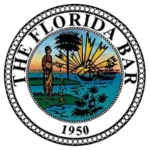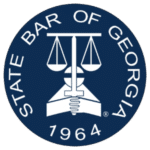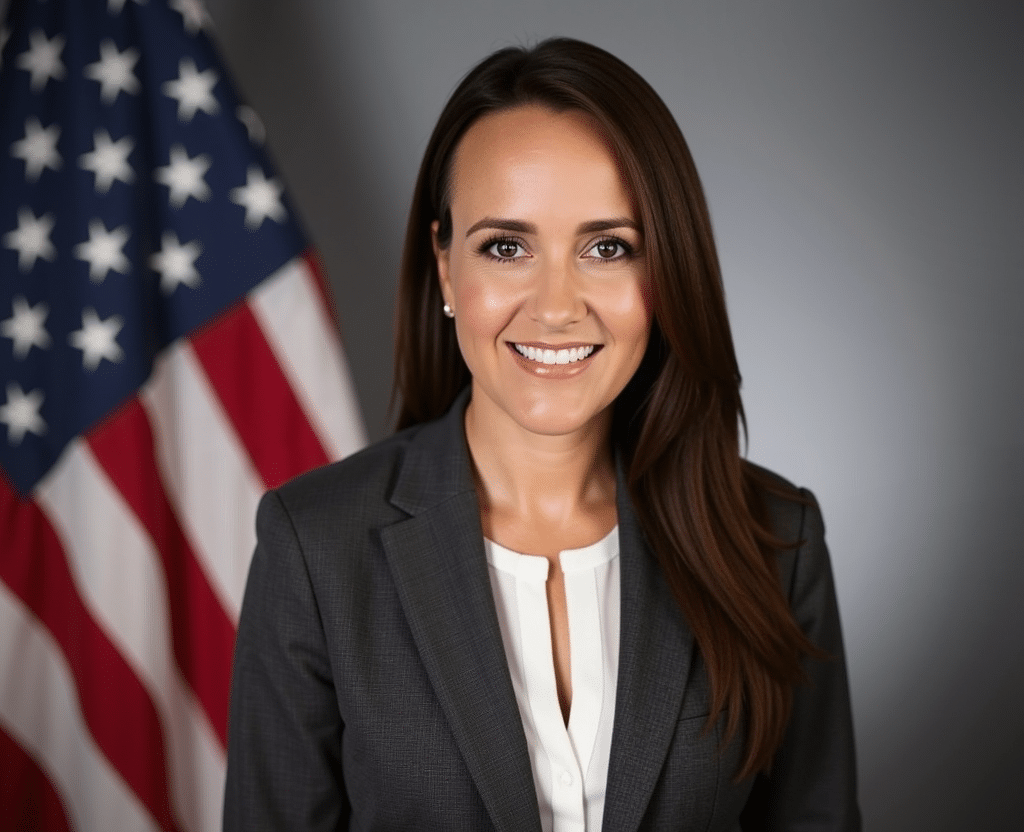Table Content
Article 107 criminalizes knowingly false statements made in an official context by individuals subject to the UCMJ. The provision covers both oral and written statements, including records, reports, and documents intended to influence official military functions. The offense applies when the statement is made with the intent to deceive or with knowledge of its falsity.
The statute targets fraudulent communication in official matters. A statement must be “official,” meaning it relates to a military duty, government function, or matter within the jurisdiction of a military department. The communication must be false, and the accused must be aware of its falsity at the time it is made.
Conduct commonly charged under Article 107 includes:
Any individual subject to the UCMJ may be charged under Article 107. This includes active duty service members, certain reservists, and others who fall under UCMJ jurisdiction at the time of the conduct. Civilians and contractors are generally excluded unless otherwise subject to military law under specific statutory provisions.
The offense requires that the accused knowingly make a false statement and intend the statement to be relied upon as true in an official matter. Negligent or mistaken statements do not meet the mental state threshold. The government must show awareness of falsity and purposeful deception.
Attempt and conspiracy charges may be brought when the underlying conduct meets general UCMJ principles governing inchoate offenses. Accomplice liability may apply if a person aids, encourages, or directs another to make a false official statement. These ancillary forms of liability follow standard Articles 77 through 81 frameworks.
The government must prove each element of Article 107 beyond a reasonable doubt to establish that the accused made a false official statement in violation of the Uniform Code of Military Justice.
The mens rea for Article 107 requires that the accused acted knowingly and with the specific intent to deceive. Mere inaccuracy or mistake is insufficient; the government must show awareness of falsity and a purposeful effort to mislead a person or entity authorized to receive official information.
The actus reus consists of making, signing, or delivering a statement that purports to be official. This includes oral statements made in an official capacity or written statements submitted in the course of military duties. The statement must relate to a matter within the jurisdiction of the military or another governmental agency.
“Official” encompasses statements made in the line of duty, to military authorities, or in documents bearing legal or administrative significance. A statement is “false” when it is untrue and known by the accused to be untrue at the time it is made or adopted.
Punishment for violations of Article 107, UCMJ (False Official Statement), depends on the date of the alleged offense. Cases involving conduct before December 27, 2023 use the traditional maximum_punishment system, while offenses on or after that date are sentenced under the structured sentencing_category framework established by the 2023 NDAA and implemented in the 2024 Manual for Courts_Martial.
Under the pre_December 27, 2023 system, Article 107 specified a single maximum punishment authorized by the President in the Manual for Courts_Martial. For false official statement, the maximum punishment included:
This framework provided a single upper limit on confinement and authorized, but did not mandate, the most severe administrative and financial penalties.
For offenses committed on or after December 27, 2023, Article 107 falls under Sentencing Category 3 as set out in Appendix 12A of the 2024 Manual for Courts_Martial. Under this structure, the following apply:
Under the sentencing_category model, the maximum confinement is not based on offense_specific historical maximums but instead on standardized ranges tied to categories. These categories group offenses by relative seriousness and assign predefined confinement limits, providing a more structured and uniform sentencing framework than the prior model, which relied on individualized maximum punishments for each offense.








Charging decisions under Article 107 typically stem from how a situation unfolds during routine administrative checks, command inquiries, or formal investigations. Patterns emerge not from theoretical misconduct but from the types of interactions service members regularly have with supervisors, law enforcement, and administrative systems. Command discretion, the nature of the underlying event, and the clarity of the alleged inconsistency all influence whether a false statement allegation becomes a formal charge.
Article 107 is most often charged when a service member provides inaccurate information during official military business. Common scenarios include:
Article 107 cases commonly originate from command-directed inquiries where inconsistencies emerge in initial statements. If the matter involves potential criminal conduct, law-enforcement agencies such as CID, NCIS, OSI, or CGIS may take over, documenting statements through recorded interviews, sworn statements, or administrative documents. Routine reporting errors discovered during audits or administrative reviews also frequently prompt deeper inquiries that lead to Article 107 allegations.
Prosecutors often include Article 107 as part of broader charge sets when a member’s statements complicate or obscure the underlying event. Charge-stacking can occur when both the underlying misconduct and the allegedly false statements are charged separately. Overlap is common with fraud-related articles and with Article 134 theories involving dishonesty or obstruction-type conduct. Article 107 may also be charged as an alternative theory when evidence suggests inconsistent statements but the precise intent behind them is still being developed.
Prosecutions under UCMJ Article 107 often hinge on the government’s ability to prove each statutory element beyond a reasonable doubt. Litigation frequently involves disagreements about witness credibility, the circumstances under which statements were made, the admissibility of evidence, and the interpretation of terms used in the statute or related provisions.
Contested issues frequently arise over whether a statement qualifies as “official,” whether it was actually false, and whether the accused made or adopted it. Questions may also develop regarding the materiality of the statement to an authorized government function. Because each element must be independently proven, disputes often center on the adequacy of the evidence supporting one or more specific components of the offense, including the context in which the statement was recorded and the reliability of the underlying documentation.
The accused’s mental state is often a significant point of contention. Litigation may focus on whether the government has shown that the accused knowingly made a false statement or acted with the required intent. In some cases, the disputed issues relate to whether mistakes, misunderstandings, or ambiguous communications negate the mental state necessary for liability. Courts may also scrutinize circumstantial evidence used to infer intent, including the timing of the statement, the accused’s awareness of relevant facts, and any inconsistencies in contemporaneous records.
Witness credibility frequently affects the resolution of Article 107 cases. Factfinders may need to evaluate competing narratives from service members, investigators, or supervisors about the circumstances in which a statement was made. Inconsistencies in recollection, potential biases, and the quality of investigative procedures can all influence how factual disputes are resolved. These issues often extend to the interpretation of written statements, logs, or reports that depend heavily on the accuracy of human observation.
Evidentiary challenges commonly involve whether statements were obtained in compliance with procedural requirements, including rights advisements. Disputes may also arise over the admissibility of digital evidence, metadata, or records generated by government systems. Courts frequently consider foundational requirements for business records, authenticity of electronic communications, and whether searches or seizures complied with constitutional and statutory standards. Suppression issues can significantly affect the availability of key proof.
Litigation may involve debates over the meaning of terms such as “official,” “false,” or “material,” as well as cross-references to other UCMJ provisions or service regulations. Ambiguity in these terms can lead to differing interpretations regarding the scope of prohibited conduct. Courts may analyze legislative history, prior military appellate decisions, and the practical application of regulations to resolve these questions.
Offenses involving false identification documents under Article 105a
Impersonation misconduct closely tied to false representations under Article 106
Perjury offenses under Article 131, often linked to false statements
Obstruction of justice under Article 131b, frequently co_charged with false official statements
Collateral consequences are administrative, professional, or legal effects that may arise independently of the sentence imposed by a court-martial. These consequences are not part of the adjudged punishment but may still affect a service member’s career, post-service opportunities, or legal status following a conviction under UCMJ Article 107 for making a false official statement.
A conviction under Article 107 may influence a range of administrative actions within the military. Possible outcomes include:
An Article 107 conviction may affect eligibility to hold or retain a security clearance because integrity-related offenses can raise concerns under adjudicative guidelines. This may restrict access to classified information and affect duty assignments. Post-service employment requiring a clearance or trust-based credentials may also be impacted.
Convictions under Article 107 are not typically associated with sex offender registration. However, reporting or disclosure requirements may apply in certain administrative or professional contexts. Any registration obligations are governed by federal and state law, independent of the UCMJ.
If the underlying conduct violates federal or state statutes, a service member may face separate civilian criminal investigation or civil liability. This exposure depends on the specific facts and jurisdiction involved.
For non-citizens, a conviction involving dishonesty may affect immigration status, admissibility, or naturalization eligibility. Consequences depend on federal immigration law and the nature of the conviction.
During investigations related to UCMJ Article 107: False Official Statement, decisions made at the outset often influence the direction and outcome of the case. The investigative phase is where most of the critical facts, statements, and interpretations begin to form, often before any charges are formally preferred.
Military investigators typically gather evidence immediately after an allegation arises. Early legal involvement can shape how statements, records, and digital materials are handled. Counsel can help ensure that evidence is preserved appropriately, that rights are respected during collection, and that potentially ambiguous information is not interpreted in an unfavorable manner.
Service members may be questioned by command or law-enforcement personnel before they fully understand the allegations or the legal implications of their responses. Without guidance, they may provide incomplete or inaccurate explanations or waive rights unintentionally. Early interviews can become key evidence in Article 107 cases, where the accuracy and intent behind statements are central issues.
Commands can initiate administrative inquiries or command-directed investigations independent of criminal action. Decisions made during these processes—such as responses to taskings or interactions with inquiry officers—can influence later determinations. Civilian military defense lawyers or detailed military counsel can help clarify what information must be provided and how it may be used.
Choices made early in the process, including whether to make a statement, consent to a search, or respond to administrative requests, can have lasting effects. These early actions may shape the trajectory of a court-martial, influence credibility assessments, or affect subsequent administrative actions, including evaluations and retention decisions.
Gonzalez & Waddington is a civilian military defense law firm that represents service members worldwide in cases arising under the Uniform Code of Military Justice. The firm focuses on defending clients in complex military criminal matters, including allegations involving false official statements, and provides guidance throughout each stage of the military justice process.
If you are facing allegations related to UCMJ Article 107 or have questions about your situation, Gonzalez & Waddington can provide an individualized consultation to help you understand your options. Contact the firm to discuss your circumstances and obtain guidance tailored to your specific needs.
Q: What does UCMJ Article 107: False Official Statement cover?
A: Article 107 applies when a service member knowingly makes a false official statement, whether written or oral, with the intent to mislead. The statement must relate to a matter within the scope of official duties or official processes. This article also covers falsifying official records. Investigators typically examine the context, the member’s intent, and whether the statement had potential to affect official functions or decision-making within the military environment.
Q: What is the maximum punishment for UCMJ Article 107: False Official Statement?
A: The maximum punishment may include a dishonorable discharge, forfeiture of all pay and allowances, and confinement for up to five years. Actual punishment depends on the circumstances of the case, including the nature of the statement, its impact on official operations, and the service member’s record. Commanders and courts consider aggravating and mitigating factors before determining an appropriate outcome within the authorized limits.
Q: Can an allegation under this article lead to administrative separation even without a conviction?
A: Yes. Administrative separation may occur based on substantiated misconduct or a commander’s assessment of suitability for continued service, even without a court-martial conviction. The process involves notification, an opportunity to respond, and, in some cases, a board hearing depending on rank, time in service, and characterization being considered. The evidence threshold is lower than in a criminal proceeding, allowing administrative action based on a preponderance of the evidence.
Q: Do I need a civilian military defense lawyer for an investigation under this article?
A: Service members have the right to consult with military defense counsel at no cost, and they may hire a civilian attorney if they prefer additional representation. Whether to involve civilian counsel depends on the complexity of the case, potential career impact, and personal preferences. Civilian lawyers can provide independent guidance and may assist in preparing statements, responding to investigators, or addressing potential administrative or judicial actions.
Q: Can an Article 107 allegation be handled without a court-martial, such as through administrative action or nonjudicial punishment?
A: Yes. Depending on the facts and command judgment, allegations under Article 107 may be addressed through nonjudicial punishment, administrative counseling, reprimands, or separation actions. These alternatives are often used when the misconduct is considered minor or when the command believes corrective measures short of court-martial are appropriate. Each option has different procedural requirements and potential long-term consequences for a service member’s career.
Q: What types of evidence are commonly reviewed in a false official statement investigation?
A: Investigators often review written statements, emails, reports, digital records, and witness interviews to determine accuracy and intent. They may also examine timelines, official logs, and electronic metadata to confirm whether a statement was knowingly false. The focus is typically on establishing what the member knew at the time the statement was made and whether the information had relevance to an official function or inquiry.
Q: Which agencies typically investigate suspected violations of Article 107?
A: Investigations may be conducted by military law enforcement agencies such as CID, NCIS, or OSI, depending on the service branch. Command-directed inquiries or inspector general reviews may also be used, particularly when the alleged misconduct relates to administrative matters. The investigating agency evaluates the context of the statement, gathers supporting documentation, and interviews witnesses to determine whether the elements of the offense are met.
If you want to review the Articles of the UCMJ and learn more about military law, you can start here: UCMJ Articles and Military Justice Resources. You may also find helpful official information from the Air Force Judge Advocate General’s Corps at afjag.af.mil.

A renowned military criminal defense attorney and best-selling author, Michael Waddington defends clients worldwide in serious cases and trains lawyers in advanced cross-examination. He is frequently featured by major media outlets like CNN and 60 Minutes.

Alexandra González-Waddington is a top military and civilian defense attorney who has handled high-profile sexual assault, violent crime, and war-crimes cases globally. Her work is widely recognized by media outlets including 60 Minutes and ABC’s Nightline.